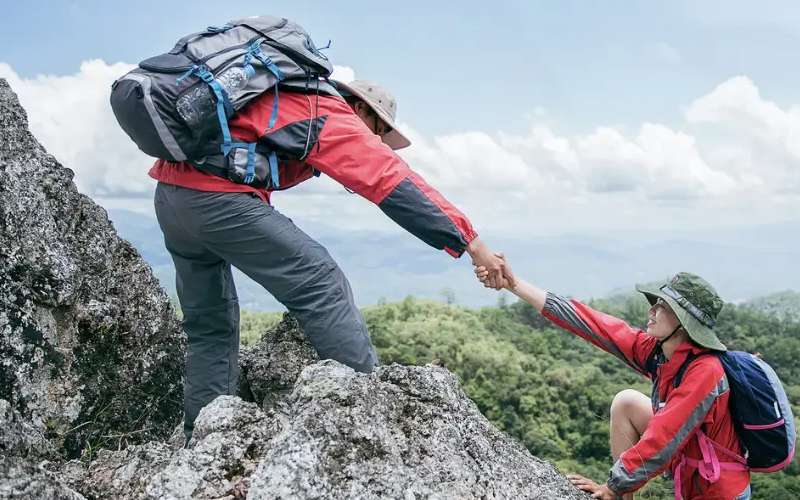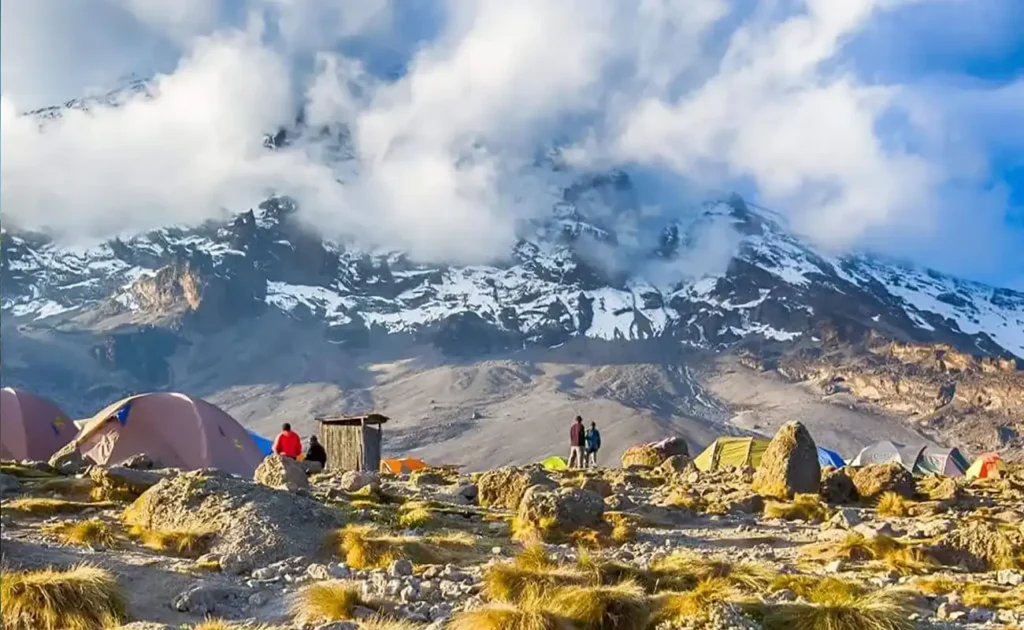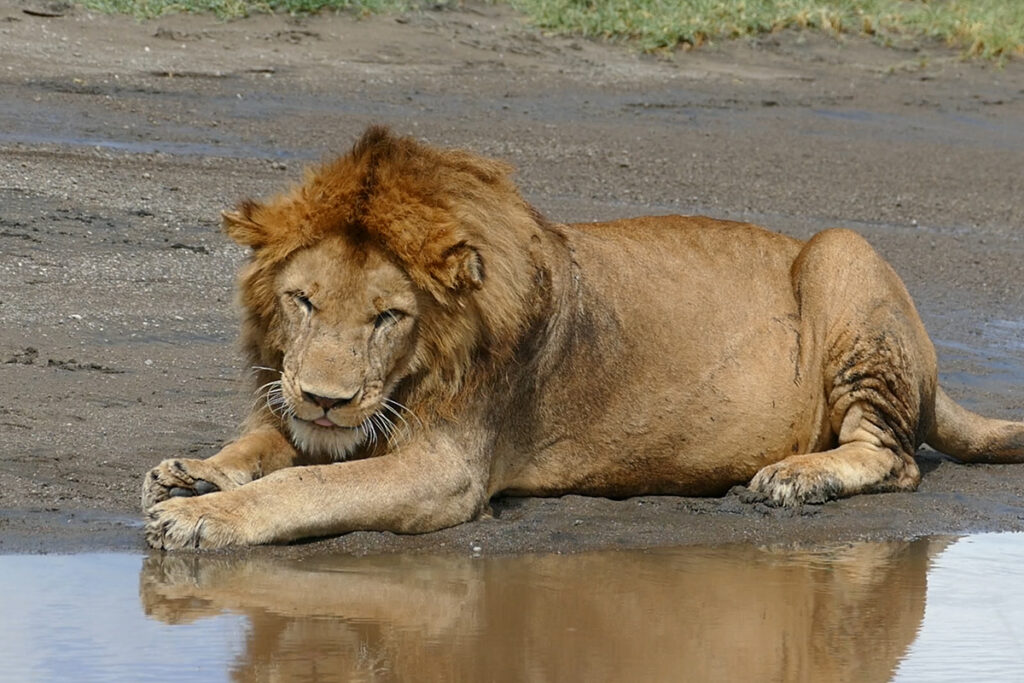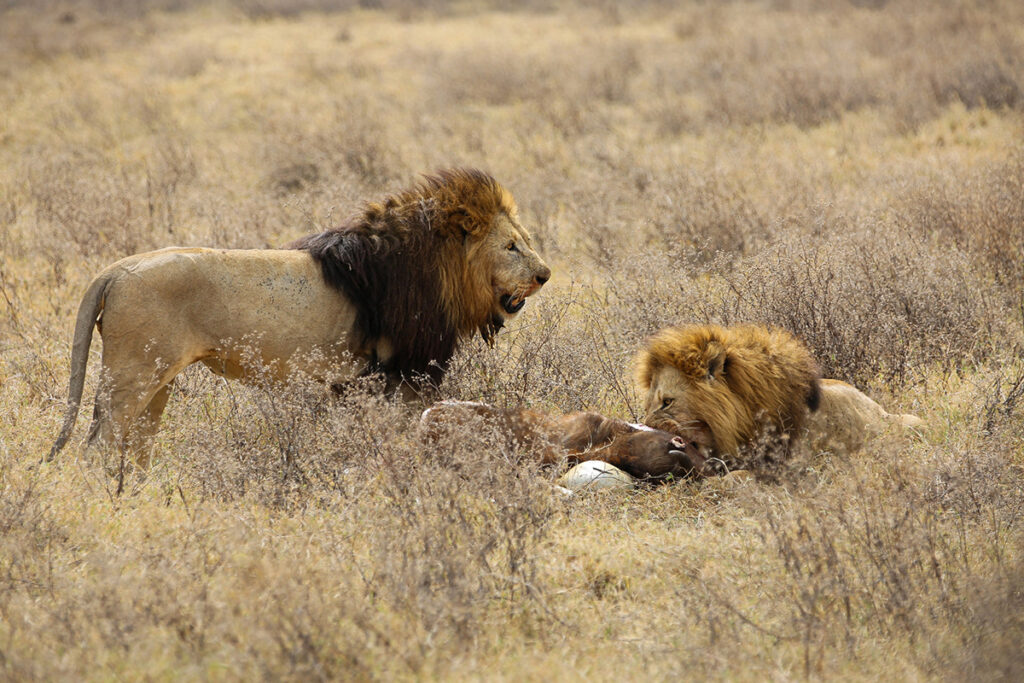Reaching the peak of Mount Kilimanjaro isn’t just a testament to physical endurance but a triumph of the mind. Many trekkers are surprised to learn that mindset can be as crucial as physical training. The mountain doesn’t just test your stamina; it challenges your resolve against uncertainty, altitude sickness, and sheer willpower.
Mental preparation dates back to when early explorers found success not merely in their equipment but in sheer mental resilience. Statistics show that a positive mindset can increase your success rate by more than 50%. To enhance your mental game, think of strategic planning as psychological gear, loaded with stress-management strategies and visualization techniques. These elements become your mental tools ensuring you’re not only climbing with your body but with an unyielding mind as well.

Mental Preparation: Essential for Your Kilimanjaro Trek
Mount Kilimanjaro stands as a majestic challenge that attracts trekkers from around the world. Climbing it is a feat not just of body but also of mind. When your legs tire and the air thins, mental strength becomes your greatest ally. It’s this mental endurance that helps overcome doubts and fear. Indeed, the mountain tests your physical limits, but it truly explores the depth of your resolve.
Preparing mentally involves more than just a positive attitude. It’s about visualizing success and remaining calm under pressure. One helpful technique is mindfulness, which keeps you focused on the present moment. Breathing exercises also play a crucial role in soothing nerves and enhancing concentration. This preparation forms a solid foundation upon which physical readiness can build.
Numerous trekkers discuss the mental games they play to keep going. A few strategies include setting small goals rather than focusing on the entire climb. Celebrating each small victory can boost morale significantly. Furthermore, trekkers often rely on external motivators like music or a mantra. This not only distracts but also infuses energy when motivation starts to dwindle.
Another critical aspect to consider is teamwork. Climbers often share their emotions and fears with others. Cooperation helps in times of difficulty, easing the stress that each member may face. Experienced climbers emphasize that friends’ encouragement can lift spirits and enhance mental fortitude. Thus, mental preparation for the Kilimanjaro trek is not a solo endeavor but a shared journey.
How to PREPARE for Kilimanjaro | TRAINING \u0026 what you NEED to KNOW!
Significance of Mental Preparation in Mountain Trekking
Mountain trekking isn’t just a physical challenge; it demands strong mental resilience. Many trekkers might think training the body is enough, but the mind is equally crucial. Climbers often face unpredictable weather, fatigue, and altitude sickness. These challenges can be overwhelming without mental preparation. Therefore, being mentally ready is as essential as having sturdy boots and a good backpack.
When you’re climbing, thinking positively can make a big difference. Positive thoughts help you push through discomfort and self-doubt. It keeps you motivated when trails become difficult. This attitude helps transform obstacles into manageable tasks. As studies suggest, a positive mindset can significantly impact a trekker’s success rate.
Furthermore, mental preparation helps with decision-making. In high-altitude environments, decisions can be life-saving. Trekkers need to stay calm and focused to make the best choices. This ability to think clearly comes from a calm mind. So, preparing mentally equips you to handle unexpected situations confidently.
Effective mental preparation isn’t just about solo strategies; it’s also about teamwork. Climbers often rely on their group for support. Encouragement from team members boosts morale and provides motivation. Sharing experiences and feelings strengthens bonds during the trek. This camaraderie becomes a source of strength, especially during challenging stretches.
Impacts of Mental Toughness on the Success Rate of Kilimanjaro Trek
Mental toughness can significantly influence a trekker’s success rate on Kilimanjaro. Climbers with strong mental resilience often handle adversity better. This mental strength helps them push through exhaustion and altitude challenges. Keeping a clear head when the path gets tough is vital. In essence, mental toughness contributes to enduring the climb physically.
Another key aspect of mental strength is adaptability. Kilimanjaro’s environment can change rapidly from sunshine to snow. Adaptable trekkers remain composed and ready for these shifts. This flexibility is vital for adjusting strategies on the fly. It fosters a mindset where challenges become opportunities for growth.
Mental toughness also plays a role in maintaining motivation. As you climb, the summit may seem distant. Trekkers with mental grit can set short-term goals to keep moving forward. These goals prevent feelings of being overwhelmed. With each successful step taken, confidence and determination grow stronger.
Success on Kilimanjaro often depends on more than just individual effort. Group dynamics can benefit from shared mental toughness. Team members offer support and motivation during tough times. This mutual encouragement enhances the group’s overall success and reduces stress. Encouraging one another’s mental strength can turn daunting stretches into shared victories.
Strategies for Enhancing Mental Stamina for Kilimanjaro Expedition
Boosting mental stamina for a Kilimanjaro trek is crucial for success. One effective strategy involves setting realistic goals. Breaking the climb into smaller, achievable segments can make the task less daunting. Each minor goal reached fuels motivation. It transforms a giant challenge into a series of manageable steps.
Visualization is another technique to enhance mental strength. Visualize not just the end goal but the journey as well. Imagine overcoming obstacles and reaching checkpoints. This mental rehearsal can build confidence and preparedness. It’s like a dress rehearsal for the mind.
Mindfulness and meditation also contribute to mental stamina. These practices help maintain focus and calmness. Engaging in regular mindfulness exercises can reduce stress and anxiety. Meditation serves as a mental break, helping you stay centered. These techniques keep you mentally agile in challenging moments.
Physical preparation supports mental stamina too. Training your body includes preparing your mind for the physical strain. Regular exercise routines keep both body and mind resilient. As your physical strength grows, so does your mental fortitude. This holistic approach ensures you’re ready in all aspects.
Peer support is invaluable during the trek. Connecting with fellow climbers provides a support system. Encouragement and shared experiences enhance morale. Sharing the load makes the journey easier for everyone. This collective strength can help overcome moments of mental fatigue.
Combatting Altitude Sickness: The Role of Positive Mindset
Altitude sickness can turn a thrilling trek into a tough challenge. Symptoms like headaches, dizziness, and nausea are common when ascending quickly. However, a positive mindset can help manage these effects. Thinking optimistically can change the way the body responds to stress. This mental shift can ease symptoms and raise confidence.
Visualization techniques support a positive attitude at high altitudes. Envision yourself adapting to the altitude with ease. Imagine breathing deeply and moving steadily along the trail. This positive imagery can help control anxious feelings. It creates a powerful feedback loop that strengthens perseverance.
Keeping a positive mindset involves surrounding yourself with supportive people. Trekking with friends helps maintain a cheerful atmosphere. Encouragement from others uplifts the spirit during difficult stretches. Their positive energy can be contagious. This shared experience turns obstacles into opportunities for bonding.
- Set small, realistic goals during the climb.
- Celebrate every progress, no matter how minor.
- Keep hydrated and maintain a steady pace.
- Listen to your body and rest when needed.
Using these mindset strategies, trekkers can build resilience. With determination, altitude sickness becomes a manageable challenge rather than an unbeatable foe. A positive outlook not only enhances well-being but also dramatically improves the journey. This mental preparation is as important as any physical training. By focusing on the mind, climbers are better equipped to enjoy every step of their adventure.
Key Takeaways
- Mental preparation is as crucial as physical training for Kilimanjaro.
- Visualization helps in coping with challenges during the trek.
- Setting small goals boosts confidence and keeps spirits high.
- Mindfulness reduces stress and enhances focus on the journey.
- Team support plays a vital role in overcoming tough stretches.




